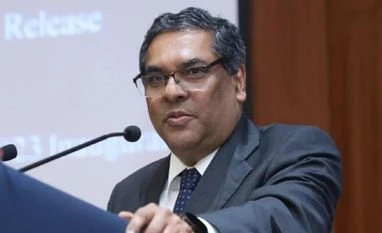Justice Sanjiv Khanna, poised to take over as the 51st Chief Justice of India (CJI), has made a significant impact through a series of landmark judgments during his tenure at the Supreme Court. As Chief Justice D Y Chandrachud prepares to retire on November 11, 2024, Justice Khanna has been proposed to succeed him, with government approval pending. However, Justice Khanna's tenure will be brief, lasting only six months until his retirement on May 13, 2025.
Despite the short duration of his role as Chief Justice, Justice Khanna has already left a lasting mark on India's judiciary with several high-profile rulings that have shaped the country’s legal landscape.
Key judgments by Justice Sanjiv Khanna
1. Dismissal of plea for 100 per cent VVPAT verification
In 2024, Justice Khanna led a division bench that dismissed the Association for Democratic Reforms’ plea seeking 100 per cent verification of Voter Verifiable Paper Audit Trail (VVPAT) slips with Electronic Voting Machine (EVM) votes. Justice Khanna upheld the Election Commission of India (ECI)'s safeguards, stating that the existing system ensures quick, error-free, and secure counting of votes, protecting the integrity of India's electoral process.
2. Striking down of the Electoral Bond Scheme
In another crucial 2024 judgment, Justice Khanna was part of a five-judge bench that declared the controversial Electoral Bond Scheme unconstitutional. In his concurring opinion, Justice Khanna rejected the argument that donor privacy extends to donations made via banking channels, pointing out that bank officers handling the bonds are aware of the donor identities.
He also highlighted that the scheme infringed upon voters' collective right to information, a cornerstone of democratic transparency.
3. Article 370 abrogation
Justice Khanna also contributed to the historic 2023 decision by a five-judge bench that upheld the abrogation of Article 370, which previously granted special status to Jammu and Kashmir.
More From This Section
Justice Khanna clarified that Article 370 was a feature of asymmetric federalism, not sovereignty, and argued that its removal did not undermine India’s federal structure.
4. Divorce under Article 142
In the 2023 case of Shilpa Sailesh vs Varun Sreenivasan, Justice Khanna authored the majority opinion affirming the Supreme Court’s authority to directly grant divorces under Article 142 of the Constitution. He ruled that the Court could dissolve marriages on grounds of irretrievable breakdown to ensure "complete justice" between the parties, a decision seen as pivotal in advancing divorce law in India.
5. Right to Information (RTI) and judicial independence
One of Justice Khanna’s most influential decisions came in 2019 when he authored a key ruling on the Right to Information (RTI) Act. In this judgment, he said that the Office of the Chief Justice of India (OCJ) could be subject to RTI requests while emphasising the need to balance judicial transparency with judges’ right to privacy. His stance reinforced the idea that judicial independence and transparency can coexist without undermining the judiciary's integrity.
)